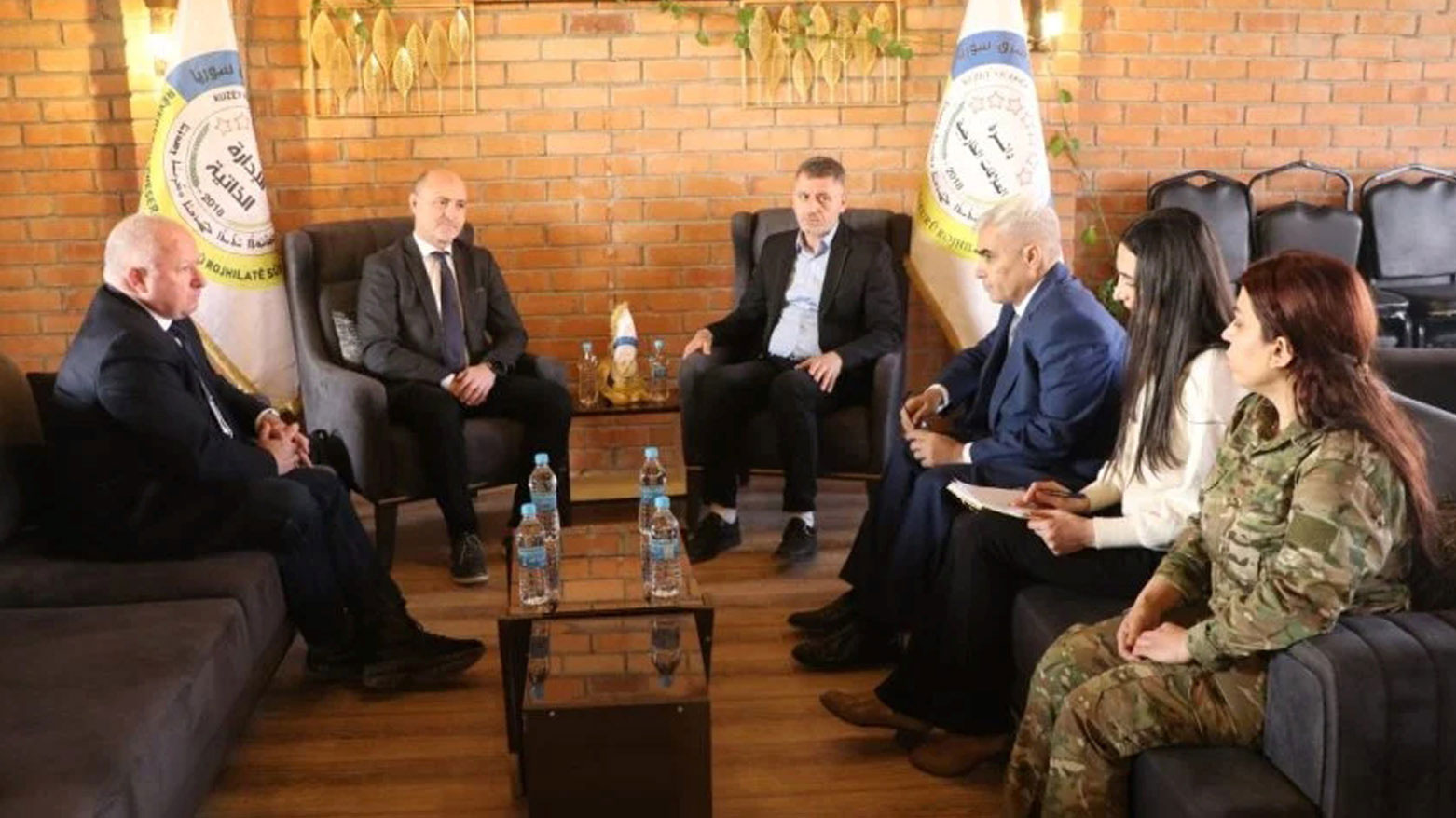Austria Repatriates ISIS Women, Children from Northeastern Syria
As part of ongoing efforts to repatriate foreign nationals associated with ISIS, the Austrian delegation officially received two children and two Austrian women affiliated with the terror group from the Autonomous Administration.

ERBIL (Kurdistan24) – An Austrian government delegation visited northeastern Syria (also known as Rojava or Western Kurdistan) and met with officials from the Foreign Relations Committee of the Autonomous Administration of North and East Syria (AANES). During the visit, the delegation discussed pressing security and humanitarian concerns, particularly the conditions within displacement and detention camps housing ISIS-affiliated individuals.
According to media outlets close to the Syrian Democratic Forces (SDF), the discussions focused on the ongoing humanitarian crisis in northeastern Syria, the deteriorating security conditions in the region, and the challenges posed by the large number of detainees linked to the so-called Islamic State (ISIS).
As part of ongoing efforts to repatriate foreign nationals associated with ISIS, the Austrian delegation officially received two children and two Austrian women affiliated with the terror group from the Autonomous Administration.
The repatriation process was carried out in coordination with the authorities in northeastern Syria and Austrian government agencies.
This latest development underscores the continued efforts by various European and international actors to address the complex issue of foreign ISIS members held in Syria. Many countries have faced legal and security challenges in repatriating their nationals due to concerns about legal prosecution, reintegration policies, and potential threats to domestic security.
The move by Austria comes amid a broader wave of repatriation efforts by other nations. In the past few days, Russia announced that it is working on returning 100 Russian children from camps in northeastern Syria.
The Autonomous Administration has repeatedly called on foreign governments to take responsibility for their citizens detained in Syria, emphasizing that the situation in detention centers, particularly at al-Hol and Roj camps, remains dire.
These camps hold thousands of women and children associated with ISIS fighters, and the authorities in northeastern Syria have warned that the lack of repatriation and rehabilitation measures could pose long-term security threats.
The international community continues to struggle with finding effective solutions for dealing with former ISIS members and their families, as legal, ethical, and security considerations complicate the repatriation process. However, the recent steps taken by Austria and Russia signal a growing recognition of the need to address the issue through coordinated diplomatic and legal frameworks.
The situation in northeastern Syria remains volatile, with regional security concerns exacerbated by ongoing instability, Turkish military operations, and the enduring threat posed by ISIS sleeper cells. The SDF and the Autonomous Administration have urged the international community to provide more support in stabilizing the region and managing the complex humanitarian and security challenges arising from the legacy of ISIS rule.